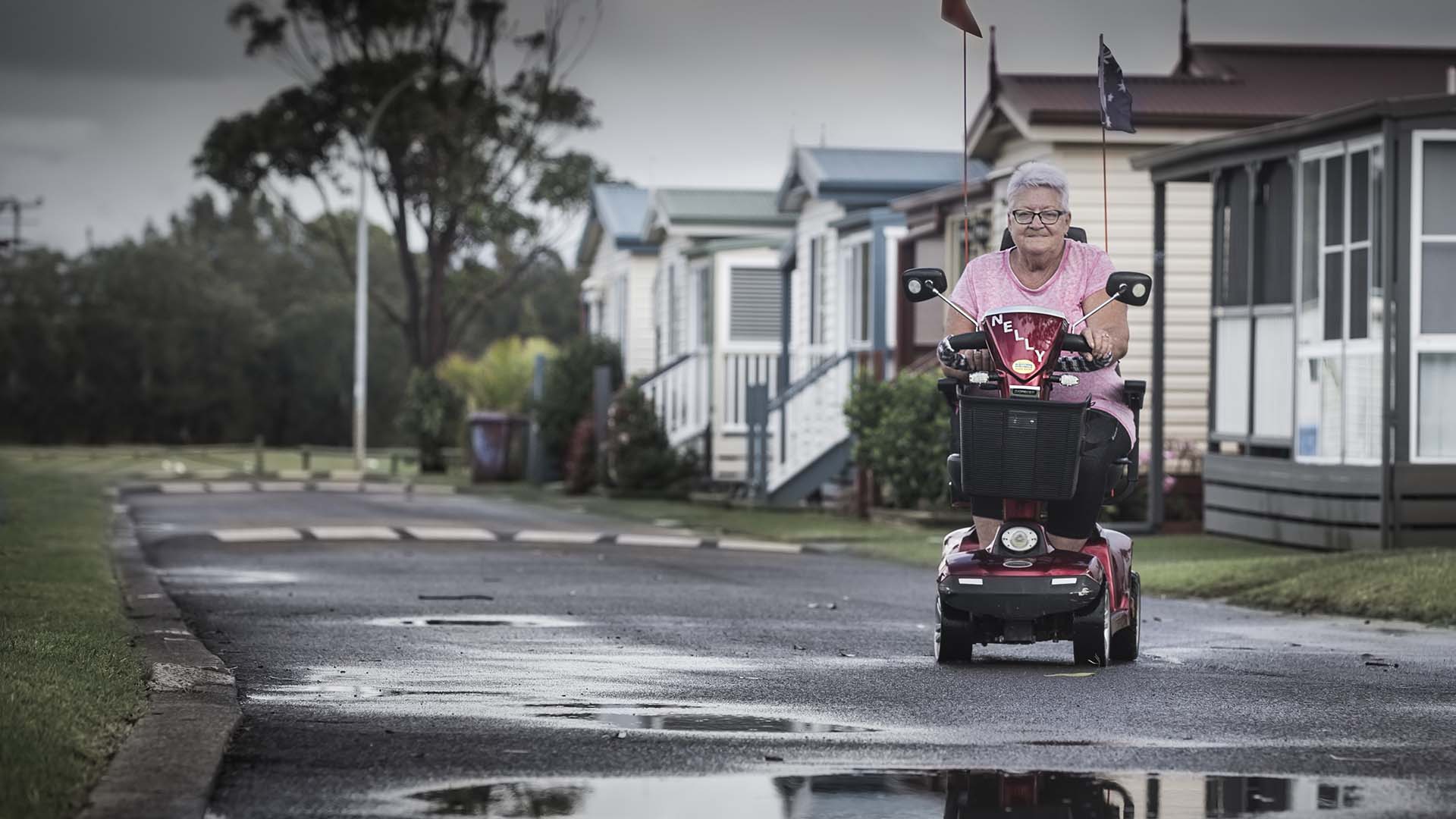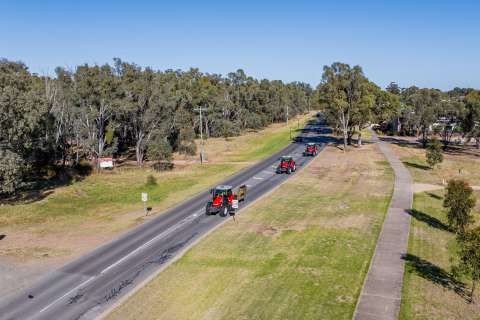UOW researchers awarded $1.5M for industry collaboration projects

A study looking at the experiences and needs of electric wheelchair and mobility scooter users, and a world-first investigation into the value of web series as a form of entertainment, were among the University of Wollongong (UOW) projects to be awarded funding in the latest round of Australian Research Council (ARC) Linkage Projects grants.
Also awarded funding were a project to develop an environmentally friendly, mercury-free method for curing new surface coatings using LED lighting; and research into improving the safety and performance of superconducting coil systems used in Magnetic Resonance Imaging (MRI) scanners.
Federal Minister for Education The Hon Dan Tehan announced the Linkage Projects grants on Friday 5 July.
The Linkage Projects scheme brings together university researchers and industry partners, with the aim of developing long-term strategic research alliances.
Total funding for the four successful UOW-led projects amounts to $1,483,000.
Additionally, a Queensland University of Technology led project involving UOW’s Associate Professor Todd Mitchell was funded to investigate next-generation mass spectrometry imaging with isomer resolution.
UOW Deputy Vice-Chancellor (Research and Innovation) Professor Jennifer L. Martin AC welcomed the announcement and congratulated the successful applicants.
“I am delighted with the announcement that the ARC has funded four UOW-led projects under the Linkage scheme. The variety of the funded projects is indicative of the world-class research being done at the University across diverse disciplines,” Professor Martin said.
“This success reflects our strong emphasis on relationship-building with industry and other research partners, as we work together to find innovative solutions to real-world problems.”
SUCCESSFUL UOW GRANTS:
New photoinitiators and polymers for tack-free LED cured surface coatings (ARC Funding: $285,000)
from UOW’s Centre for Medical and Molecular Bioscience is leading the project to develop surface coatings curable by energy from LEDs (light emitting diodes), while improving workplace health and safety.
Mercury lamps are currently used to cure coatings for a range of products, from wood products (such as parquet flooring, medium density fibreboards), furniture, and wind turbine blades to coated metal (such as can coatings, automotive and industrial metals), printing (on paper card or metals, and cosmetics (nail polish curing)
With the use of mercury lamps in the industry set to be phased out, the project has researchers partnering with Moss Vale company A&I Coatings to explore the use of LEDs as an alternative, which would also reduce exposure to solvents in the workplace, and lower the energy required to produce high-quality surface coated products.
Research outcomes from this project will include new surface coatings for a wide range of end users and the commercialisation of the technology.
Project Team: Professor Paul Keller, Dr Philip Barker, Associate Professor Adam Trevitt, Professor Dianne Jolley, Mr Peter Gillies.
Integrated Futures for the use of Motorised Mobility Devices (ARC Funding: $356,000)
from the School of Geography and Sustainable Communities in the Faculty of Social Sciences is investigating the future of Motorised Mobility Devices (MMDs), such as electric wheelchairs and mobility scooters, and the increased regulation for people who use them in urban and regional communities.
With the lack of evidence and explanation of MMD use in transport decision making, this project aims fundamentally to change knowledge about the everyday meanings and experiences of MMD users.
Professor Waitt and his team, along with industry partner Assistive Technology Suppliers Australasia, seek to develop comparative, trustworthy and in-depth baseline empirical data about how people who are reliant upon MMDs negotiate the current transport infrastructure.
Project Team: Professor Gordon Waitt, Dr Thomas Birtchnell, Professor Stacy Carter, Mr David Sinclair.
Valuing Web Series: Economic, Industrial, Cultural and Social Value (ARC funding: $577,535)
from the Faculty of Law Humanities and Arts is investigating the value of web series as a form of online screen entertainment characterised by original and diverse content produced by emerging creatives. It will deploy the theoretical frame of “total value” to assess the role and viability of web series with various Web Series Festival (WebFest) organisations.
The team will be looking at the career development opportunities for digital content makers, the audiences who consume the digital content and the value accrued by the Australian screen industry as web series contribute to innovation in a rapidly evolving global screen ecology.
Project Team: Professor Susan Turnbull, Professor Stuart Cunningham, Dr Steinar Ellingsen, Dr Nicola Evans, Dr Mark Ryan, Dr Emilia Zboralska
Liquid metal for quench detection sensors and low resistance joints (ARC funding: $264,192)
Recent years have seen a sharp increase in demand for superconducting magnetic resonance imaging (MRI) magnets used in healthcare. Improving their stability and safety, while keeping costs low, is a critical issue.
will lead a project to develop next-generation liquid metal-based superconducting joints and quench detection sensors to enable superconducting magnets to operate in “persistent mode”. This would make a significant contribution to improving the safety and performance of superconducting coil systems at a reduced cost. Furthermore, intelligent features will be formulated to prevent hazardous and inefficient operating conditions.
Working with Ningbo Jansen NMR Technology Company, expected outcomes include an advanced superconducting coil system with improved stability and safety.
Project Team: Professor Shi Xue Dou, Dr Xun Xu, Dr Yi Du, Dr Wenping Sun, Dr Khay See, Mr Jie Zheng.








